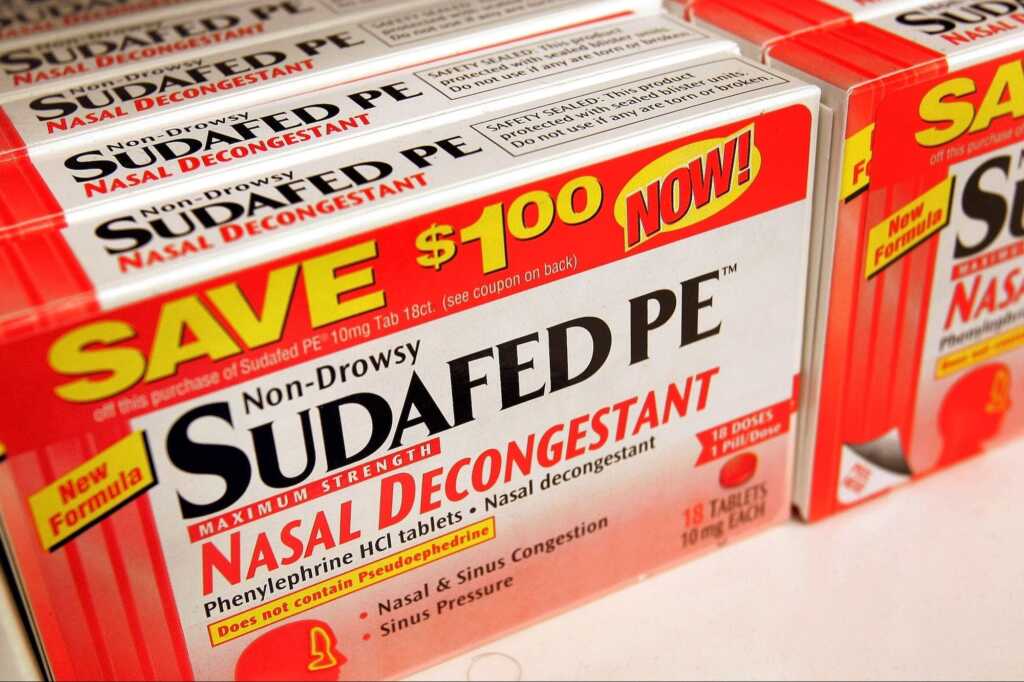Advisors for the US Food and Drug Administration (FDA) are sniffing their noses at a popular decongestant they claim doesn’t actually relieve the symptoms of a common cold.
On Tuesday, advisors to the FDA unanimously voted that phenylephrine, or “PE,” found in oral versions of Sudafed, Allegra, and Dayquil, is ineffective and should be pulled from the shelves.
The FDA must now determine whether they want to follow the panel’s recommendation. This major decision would mean companies such as Procter & Gamble and Johnson & Johnson would have to pull many of their products labeled “PE” out of drugstores.
“I think there’s a safety issue there,” Dr. Paul Pisaric of Archwell Health in Oklahoma told The Los Angeles Times. “I think this is a done deal as far as I’m concerned. It doesn’t work.”
A brief history of phenylephrine
In 2006, President Bush signed an act banning over-the-counter cold medicines with pseudoephedrine sales. The decongestant effectively clears stuffy noses but was also used in the illicit market to make methamphetamine.
Drug companies responded by replacing pseudoephedrine with a safer ingredient called phenylephrine. Customers could still buy products containing pseudoephedrine, but it was placed behind the counter at pharmacies and, in many cases, required a prescription from a doctor. Drugs with names such as Sudafed PE are much easier to purchase, making up the bulk of the $2.2 billion market for oral decongestants.
But doctors and concerned citizens have questioned PE’s effectiveness for years.
Panel votes no
Responding to continuing criticism of phenylephrine by doctors and citizen petitions, the Food and Drug Administration assembled a committee of experts to research whether the ingredient works.
The committee was asked to answer a single question: “Do the current scientific data that were presented support that the monograph dosage of orally administered phenylephrine is effective as a nasal decongestant?”
Its unanimous answer: “No.”
The committee also agreed that there is no more need for further studies. In other words, there decision was final.
“We really should not have products on the market that are not effective,” committee member Dr. Diane Ginsburg of the University of Texas at Austin College of Pharmacy told CNN.
Nasal sprays are okay
One caveat to the FDA committee’s recommendations. Drugs with phenylephrine that come as nasal sprays have been shown to be effective against congestion. But the oral versions, such as pills and syrups, not so much. Why? Some researchers believe that phenylephrine is metabolized by our bellies so well that not enough makes it into our bloodstream and up to our noses.
We are now available over telegram, Click here to subscribe to our telegram channel to receive regular updates straight to your phone.



